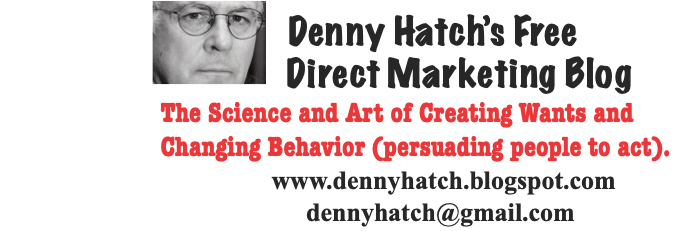http://dennyhatch.blogspot.com/2022/05/158-play-dirty.html
#158 Blog Post – Tuesday, 31 May 2022
Posted by Denny Hatch
It's High Time to Shriek Truth to the Media,
Congress, Supreme Court and Gun Lobby
America the Sanitized: One of Many Sad, Sick Memorials
Above is a front-page photo from last week’s online edition of The Washington Post. This pastoral ad hoc memorial with sweet floral bouquets doesn’t begin to show the bloody-minded mayhem and murder by a marauding maniac of sweet innocent children and their wonderful teachers.
Looking for a powerful lede illustration for this blog post, I ransacked the Internet in search of a news photographer’s full-color photo of an actual murder scene. I wanted to shock and show the carnage of a grade school massacre—tiny innocent bodies, heads blown to bits and covered in bright red blood gunned down in one another’s arms.
I found no such picture available anywhere from inside the United States—where the vast majority of us have never seen war firsthand.
I did discover some black-and-white photos of corpses piled up on WWII battlefields and in Nazi concentration camps. Alas, no visuals that would rile up viewers and readers with images of small, sweet children as the victims of pandemonium and covered in blood in the “greatest country in the world.”
However, here’s one image I turned up:
Note the caption: “polliticallyincorrect.news.”
A Media Conspiracy
It’s painfully obvious the media are engaged in a vast unspoken conspiracy to sanitize America. They will not show actual carnage — live or stills in blazing full color — because it’s “politically incorrect.”
The print, TV and e-news nabobs are obviously
terrified of showing anything that might be “in bad taste” that could upset
precious readers, viewers and politicians, causing them to not only raise a fuss,
but also click on “delete,” switch channels and/or cancel their subscriptions.
Print, digital and TV media are more concerned with saving their fat asses rather than saving young, precious lives. This is also true of the President, Congress and the Supreme Court.
My opinion: it’s high the hell time the entire country got sickened, upset and mightily pissed off.
For Starters…
To review the bidding, here’s a quickie look at the Second Amendment of the U.S. Constitution that was ratified December 15, 1791:
“A well-regulated Militia, being necessary to the security of a free State, the right of the people to keep and bear Arms, shall not be infringed.”
These twenty-six words have been the law of the land for 231 years.
Let this YouTube Video #1 show you what that Second Amendment provision meant to the authors and signers of the Constitution in 1776.
#1 Instructional YouTube Video
(one
minute and 9 seconds)
https://www.youtube.com/watch?v=xCrscZljkwc
YouTube Key Words:
Colonial Classroom Loading
Got that? Rather comforting. Sweet, actually. Protect your home and family from intruders, rapists, outlaws and rampaging Indians. Go hunting to put food on the table. Absolutely it made common sense in 1791.
What about today? Memorial Day Weekend 2022?
Okay, let’s look at a very short (29
seconds) instructional video. Thanks to YouTube, you can visualize what
parents, their grade school children and educators
are dealing with today in terms of AR-15s—Americans' weapon of choice
for the mass murdering of elementary school children in their
classrooms.
#2 Instructional YouTube Video
(29 Seconds)
https://www.youtube.com/watch?v=BufmVHJqnac
YouTube Key Words:
Bump Fire an AR
Takeaways to Consider
• You are invited to join me in founding and funding a 501c3 organization:
"ONE-WORD CHANGE IN THE SECOND AMENDMENT"
“A well-regulated Militia, being necessary to the security of
a free State, the right of the people to keep and bear Arms Single
Shot Muzzle Loaders, shall not be infringed.”
-or-
"REPEAL THE SECOND AMENDMENT"
—Justice John Paul Stevens
27 March 2018
•
Just kidding. DO NOT SEND ME MONEY!
•
However, the sanitizing of America — plus the national policy of
outrage, bluster, hand wringing and inaction will not Save the Children.
I'd like to think we are better than that. We are not.
• P.S. Thank you, God, for YouTube.
###
Word Count: 648











